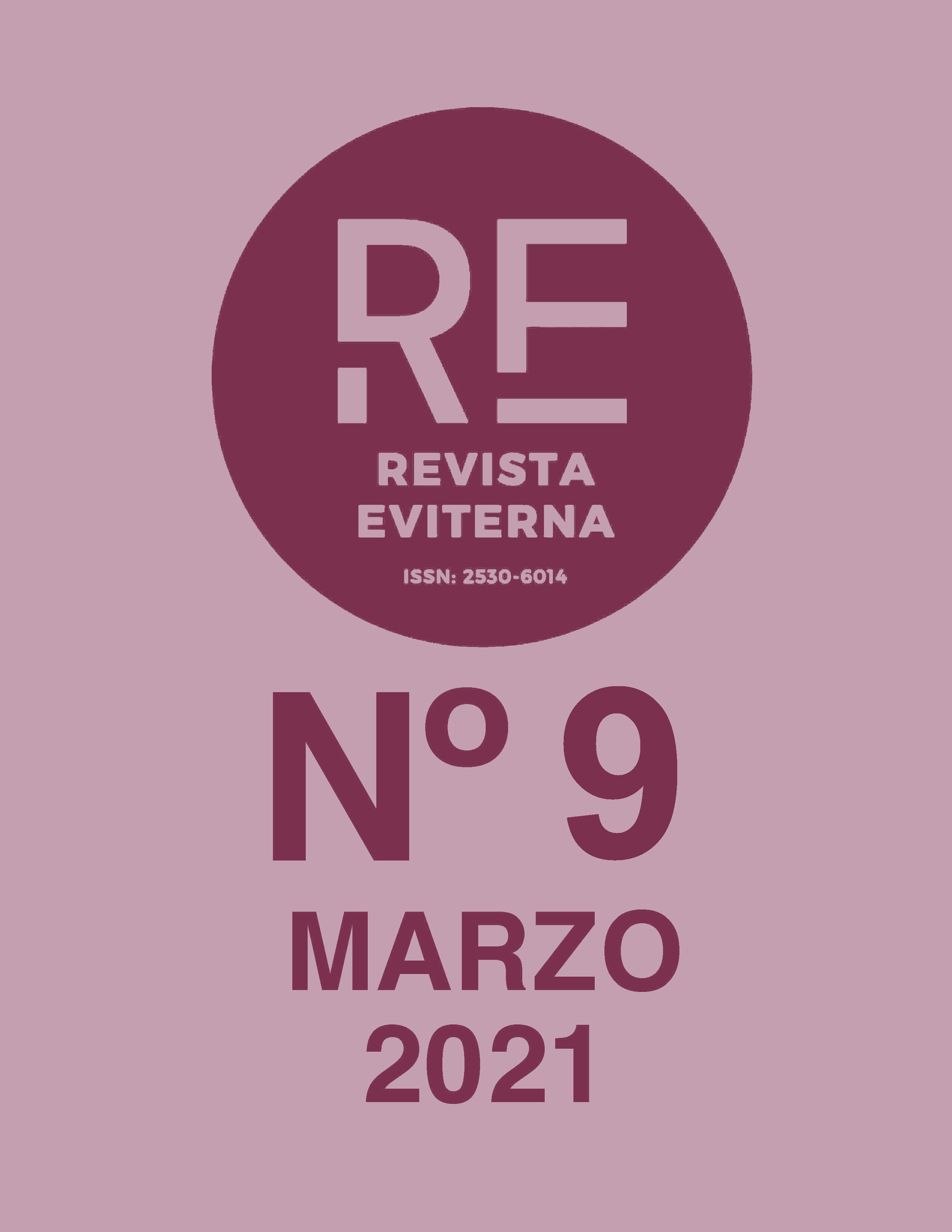A cosmogonic project in human form
Swedenborgian notions in William Blake
DOI:
https://doi.org/10.24310/Eviternare.vi9.11158Keywords:
Swedenborg, William Blake, cosmogonic, Universe, humanAbstract
The article is about the similarity in notions of God and Universe of the Swedish mystic Emanuel Swedenborg and the English poet and engraver William Blake. By the reading of their works, in which they describe the spiritual world revealed to them in their visions, the required considerations to understand their respective religious thoughts are extracted. Later, the comparative analysis of these elements through the word-image interaction is the mean with which we can establish a connection in their works about the notions dealt with in two points. The first is the conception of the Divine Human, according to which God and man have the same qualities and are the same person. The second aspect they have in common is the idea that all parts of the Universe are interrelated as organs into a great human figure.
Downloads
Metrics
Publication Facts
Reviewer profiles N/A
Author statements
Indexed in
-
—
- Academic society
- N/A
- Publisher
- Universidad de Málaga
References
Antón Pacheco, J. A. (1991). Un libro sobre Swedenborg. Sevilla: Secretariado de Publicaciones de la Universidad de Sevilla.
Antón Pacheco, J. A. (1993). Swedenborg y la religiosidad romántica. Isidorianum 2.4: 99-114.
Bellin, H., y D. Ruhl (Eds.) (1985). Blake and Swedenborg «Opposittion Is True Friendship»: the Sources of William Blake’s Arts in the Writings of Emanuel Swedenborg. Nueva York: Swedenborg Foundation.
Bindman, D. (1989). William Blake, artista. Torre de la Botica. Madrid: Swan.
Blom-Dahl, C. A., y J. A. Antón Pacheco (Eds.) (2000). El habitante de dos mundos: obra científica, religiosa y visionaria. Madrid: Trotta.
Bloom, H. (1974). Los poetas visionarios del Romanticismo inglés. Trad. Mariano Antolín. Barcelona: Barral.
Borges, J. L. (1998). Borges Oral. Biblioteca Borges. Madrid: Alianza.
Chesterton, G. K. [2007] (2017). William Blake. Trad. Victoria León Varela. 3.ª ed. Espuela de Plata: Sevilla.
Giovetti, P. (1990), Emanuel Swedenborg. Más Allá de la Ciencia, n.º 17: pp. 64-71.
Keynes, G. [1957] (1969). The Complete Writings of William Blake. 3.ª ed. Oxford University Press: Londres.
Puledda, S. (2002). Un humanista contemporáneo. Escritos y conferencias de Salvatore Puledda. Santiago: Virtual.
Swedenborg, E. (2002). Del Cielo y del Infierno. Trads. María Tabuyo y Agustín López. Siruela: Madrid.
Schütze, S., y M. A. Terzoli (2014). William Blake: La Divina Comedia de Dante. Taschen: Barcelona.
Raine, K. (2013). Ocho ensayos sobre William Blake. Trad. Carla Carmona. Atalanta: Gerona.
Yeats, W. B. (2019). William Blake. La imaginación y el simbolismo. Felmar-Archivos Vola: Madrid.
Downloads
Published
How to Cite
Issue
Section
License
All the contents published in Revista Eviterna are subject to the Creative Commons Reconocimento-NoComercia-Compartirigual 4.0 license, the full text of which can be found at <http://creativecommons.org/licenses/by-nc-sa/4.0>
They may be copied, used, disseminated, transmitted and publicly exposed, provided that:
The authorship and original source of your publication (Journal, editorial and URL of the work) are cited.
They are not used for commercial purposes.
The existence and specifications of this use license are mentioned.

Copyright is of two kinds: moral rights and patrimonial rights. Moral rights are perpetual, inalienable, inalienable, inalienable, inalienable and imprescriptible prerogatives.
In accordance with copyright legislation, Revista Eviterna recognizes and respects the moral rights of the authors, as well as the ownership of the economic right, which will be transferred to the University of Malaga for dissemination in open access.
The economic rights refer to the benefits obtained by the use or disclosure of the works. Revista Eviterna is published in open access and is exclusively authorized to carry out or authorize by any means the use, distribution, disclosure, reproduction, adaptation, translation or transformation of the work.
It is the responsibility of the authors to obtain the necessary permissions of the images that are subject to copyright.







12.png)



